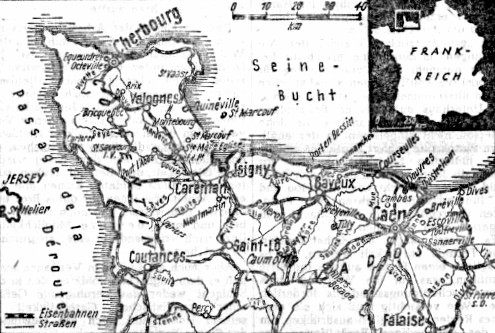Nazi flying bomb reported ‘fizzle’
Military leaders say secret weapon once worried them
Washington (AP) –
From a strictly military viewpoint, the Nazi’s greatest secret anti-invasion weapon, the highly-touted flying bomb, is a fizzle.
This is the opinion of responsible military leaders here – men who were seriously worried a few weeks ago over the tricks the Germans might spring in the critical hours of the invasion.
Now the time for effective use of tricks has passed. Only by the proved weapons of war, tanks, guns, bombs, planes, artillery, gas, it is held, can the enemy do serious harm.
It is a question whether the Germans will ever release gas now, partly because they would have to employ it in the first few days when beachheads were narrow if they had intended it to stop the invasion and partly because of the threat of devastating Allied reprisal.
Concern over Hitler’s boasted arsenal of secret weapons was high in the weeks before invasion because no Allied leader could be sure exactly what German science had perfected. If Hitler possessed a powerful new weapon and unleashed it at the critical moment of attack, then the second front might be thwarted. Such was the line of worry.
London uncertain
London was as uncertain as Washington and in both capitals, there was speculation over super-explosives, mysterious rays, paralyzing gas attacks, counter-invasion by disease germs, terrifying rocket bombs controlled by airplane radio with deadly accuracy.
Now it turns out, according to estimates made here, that what the Germans actually produced to make good their threats is an explosive-laden rocket plane of limited range (150 miles) and great inaccuracy – this is the weapons they relied on to break the invasion at the critical moment.
Apparently, they conceived two main tactical uses for this weapon – to smash at London and to work havoc among ships of the invasion armada in the English Channel.
Distributing their limited number of rockets according to their fears of attack along the Channel, they concentrated in the Calais area.
There they waited for the Allied ships to come across and there they were outflanked when Gen. Dwight D. Eisenhower chose instead to strike into Normandy.
